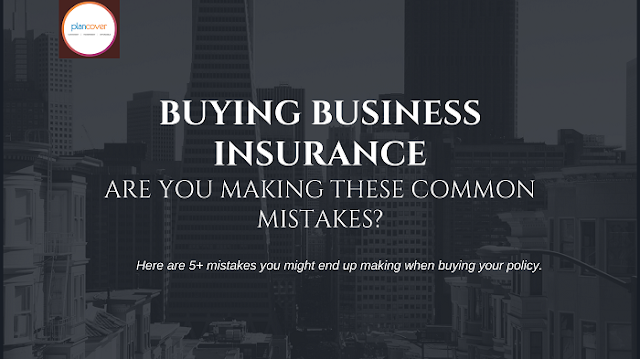
The COVID-19-induced lockdown brought hundreds and thousands of businesses at standstill. They have sustained crores of losses. And the worst part? Under the Standard Fire and Special Perils Policy, they cannot claim any insurance amount for the loss. While this was fairly expected by some in the corporate world, many were surprised – especially the SME owners who don’t necessarily have dedicated experts by their side for advice and consultation.
This development exposes a common but very critical mistake people make when buying small business insurance: Not understanding the terms and conditions clearly. And this is a mistake that leaves them vulnerable to huge possible losses in the business. If you’re planning to buy or adjust business insurance, it’s essential that you have the needed understanding of the policy.
Find A Trusted Insurance Brokering Firm
The first step is finding a good insurance brokering services provider whom you can trust and rely on. This is far from easy; it’s much more than just Googling a few phrases and settling on the first name that you see. You must do adequate research on the broker or agent to ensure you’re onboarding someone experienced. Thereon, it becomes teamwork between you and them. It is their responsibility to explain every term of the insurance and resolve all your queries AND it’s your duty to keep them aware and updated of your business.
5 Common Mistakes People Make When Buying Small Business Insurance
In addition to the improper and incomplete understanding of the policy, there are several other mistakes people make when buying small business insurance. Here are the five common ones:
- Trying to find the cheapest monthly premium. And this something many small business owners do. Buying insurance with the set priority of finding the cheapest policy can, in fact, cost you heavily in the long-run due to lack of enough coverage. Ideally, you should choose an insurance based on your requirement after comparing it with other business insurance policies.
- Compromising with insurer’s demands and terms. Instead, you should choose to leave and find another insurance company if your existing insurer is making changes and introducing terms that you aren’t particularly excited about. Unfortunately, many business owners refuse to make the change just because they have been with their existing insurance company for long and they are comfortable with them.
- Not anticipating the potential income losses. For example, if your business premise caught fire, you would have to remain shut until the damages are fixed. The downtime would come with a hefty cost, which could otherwise be countered by adding business income coverage to the policy. It will help reimburse the lost income until your business starts again.
- Blindly renewing the policy every year without considering the changing needs and requirements of your business. After years, your company has assumingly grown. It has more assets, employees, vendors; it is bigger now. Keeping the same policy you chose a long time back is a mistake. You should regularly review the coverage and make the required adjustments based on where your business stands now.
- Listening too much to others and getting over-insured. This is a problem with business owners who are overcautious. Not that it’s a problem but it comes with a price. If you’re buying insurance products that you don’t need, you’re basically throwing away your money. Instead of listening to others, work along with your insurance agent to assess the possible risks and then choose the policy accordingly.
Sidestep These Mistakes
Avoid these common pitfalls when buying small business insurance. Have a fair knowledge and understanding of what the insurance covers, its deductibles, terms, conditions, obligations, niche-specific clauses, and more. Find a trusted broker and work as a team; ask them questions, listen to their advice. This can help you avoid or work around many future worries and possible business losses – the same “worries” and “losses” that business owners are struggling with at present in this pandemic.
Remember: You cannot make an informed decision unless you understand that particular subject properly. (Of course, this goes for every kind of insurance, from car to group health insurance, but that’s a whole different conversation altogether.)
Comments
Post a Comment